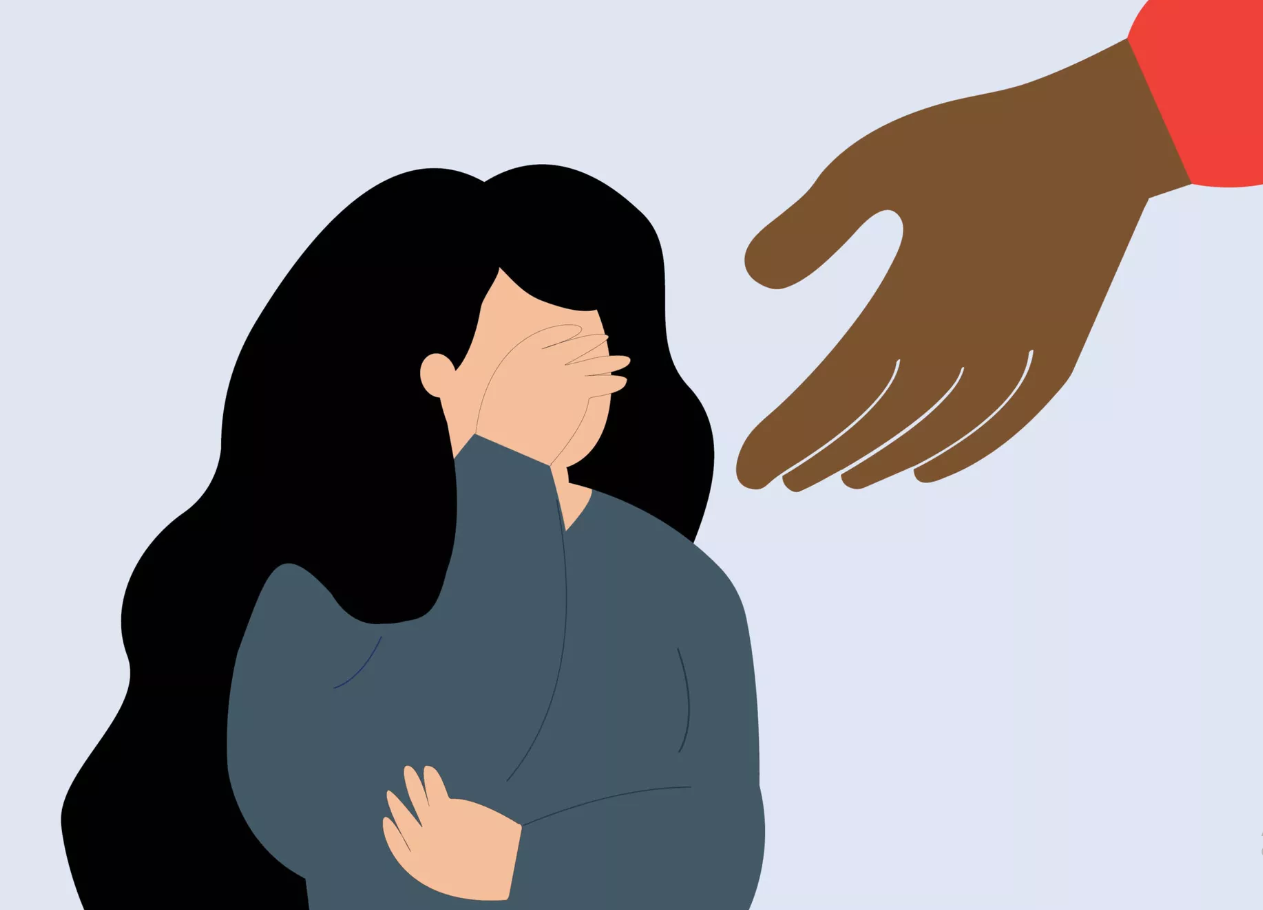Are They Actually A Narcissist? Understanding the Term, Your Feelings, and Healthier Paths Forward
The word narcissist gets thrown around a lot these days. It shows up in conversations with friends, online forums, TikToks, and even in casual jokes about someone being self-absorbed. The term gives us something to hold on to when a relationship doesn’t feel right. It can even serve as an “excuse” for someone else’s actions, something that feels easier than diving deeper into the complexity of what’s really going on. But while labeling someone as a narcissist may feel validating at first, it can also limit our understanding of our relationship dynamics and, ultimately, of ourselves.
This blog will help you unpack what narcissism actually is, why it’s so tempting to apply the label loosely, and how to ask better questions about your relationship. We’ll also explore healthier ways to communicate your concerns, how to validate your feelings, and how to take steps toward clarity without needing to rely on quick labels.
Why We’re Drawn to the Label “Narcissist”
When we’re hurt, confused, or frustrated in a relationship, we naturally seek explanations. In psychology, there’s a concept called confirmation bias, or the tendency to seek out and believe information that confirms what we already think or feel, while ignoring information that might suggest otherwise. Social media thrives on this. If you watch one video about narcissistic partners, the algorithm will likely serve you dozens more, reinforcing your suspicions. Soon, you may start to see every frustrating behavior through that lens.
This creates what’s known as a cognitive distortion, which is a way of thinking that simplifies a complex reality into black and white categories. Another related concept is the availability heuristic: we assume that the information most readily available to us (like countless online posts about narcissism) must be accurate or representative. The problem is that these shortcuts in thinking don’t always give us the full picture. They can lead us to prematurely label a partner as a narcissist, when the reality may be far more nuanced.
Why do we fall into this trap? Because naming a problem provides temporary relief. It helps us make sense of our emotions and provides a sense of control. But when the label becomes the end of the conversation rather than the beginning, it can prevent us from truly understanding what’s happening and what changes might be possible.
What Is Narcissism?
Narcissism exists on a spectrum. A certain amount of self-focus is normal and even healthy, think of it as the ability to celebrate your achievements or prioritize self-care. However, Narcissistic Personality Disorder (NPD) is a clinical diagnosis defined in the DSM-5. It’s not just about someone being arrogant or selfish; it’s a pervasive and rigid personality structure that significantly impairs relationships and functioning.
Core Features of Narcissistic Personality Disorder
Grandiosity: Exaggerated sense of self-importance, often without commensurate achievements.
Need for admiration: Constant seeking of validation, attention, and praise.
Lack of empathy: Difficulty recognizing or caring about the needs and feelings of others.
Sense of entitlement: Expecting special treatment without earning it.
Exploitation: Using others to achieve personal goals.
Difficulty with criticism: Extreme sensitivity to perceived rejection, criticism, or failure.
Envy: Believing others envy them, or feeling envious of others’ success.
Importantly, not every person with a few of these traits has NPD. Many people may show narcissistic behaviors in stressful periods or in specific contexts but are capable of empathy and healthy relationships overall.
Photo from VeryWell Mind Article “17 Signs You're in a Narcissistic Marriage or Relationship”
Narcissism vs. Emotional Illiteracy vs. Emotional Immaturity
Sometimes what looks like narcissism is actually something else. Two common alternatives are emotional illiteracy and emotional immaturity.
Emotional Illiteracy
Emotional illiteracy refers to not having the language or skills to identify, express, or regulate emotions. Someone emotionally illiterate might:
Struggle to name how they feel beyond “mad,” “sad,” or “fine.”
Avoid talking about emotions altogether.
Misinterpret their partner’s feelings as criticism rather than expressions of need.
These individuals may shut down in conflict, not because they don’t care, but because they genuinely lack the tools to navigate emotional conversations.
Emotional Immaturity
Emotional immaturity involves patterns of reacting to situations in ways that are more childlike than adult. Signs might include:
Blaming others for problems instead of taking responsibility.
Sulking, withdrawing, or using passive-aggressive behavior instead of open communication.
Difficulty delaying gratification or tolerating discomfort.
While emotionally immature behaviors can be hurtful, they’re not the same as narcissism. The key distinction is intent: narcissism is marked by a consistent disregard for others’ needs, while immaturity is more about limited coping skills.
Why This Distinction Matters
If we mislabel someone as a narcissist when they are emotionally immature or emotionally illiterate, we may prematurely dismiss the potential for growth. Recognizing the difference allows us to make more informed decisions: is this a pattern that can improve with effort, or is it an entrenched dynamic that consistently harms your well-being?
Questions to Ask Yourself About Relationship Health
Rather than jumping straight to labels, it may be more helpful to step back and ask: Is my relationship healthy? Here are some guiding questions:
Do I feel listened to and that my partner makes space for my feelings?
Does my partner share responsibility for our relationship challenges?
Do they show care and consideration even when there’s no direct benefit to them?
When I express my needs, do they make an effort to meet me halfway?
Can we work through disagreements without fear of punishment, manipulation, or stonewalling?
Do I feel safe being myself in this relationship?
Do I feel respected, even when we disagree?
Can we both apologize and repair after conflict?
Do I feel a sense of reciprocity—where both giving and receiving happen fairly naturally?
Am I able to express boundaries without fear of losing the relationship?
If several of your answers raise red flags, it’s worth pausing to reflect: am I being valued here, or am I constantly justifying or minimizing unhealthy dynamics?
Communicating Concerns: A Healthy Path Forward
When something feels off, the next step isn’t necessarily to assign a label; it’s to communicate. One helpful framework comes from Dialectical Behavior Therapy (DBT): DEAR MAN. This skill provides a clear structure for asserting your needs while maintaining respect and balance.
DEAR MAN stands for:
Describe the situation clearly
Express your feelings
Assert your needs directly
Reinforce the benefits of meeting your request
Mindful—stay on topic, don’t get sidetracked
Appear confident
Negotiate when needed
For example:
Describe: “When we make plans and they’re canceled last minute…”
Express: “…I feel hurt and unimportant.”
Assert: “I need more consistency in how we make and keep plans.”
Reinforce: “This would help me feel more connected and valued in our relationship.”
You can learn more here: DBT DEAR MAN Tool and this YouTube video.
This skill is straightforward but takes practice. Working with a therapist can help you practice DEAR MAN in a safe space and tailor it to your situation.
Validating Your Feelings (and Your Right to Boundaries)
If you’re feeling frustrated, confused, or even hopeless in your relationship, those feelings are valid. It’s not “too much” to want respect, empathy, and care from your partner. Remember: you are 50% of the relationship. Your needs and feelings matter just as much as your partner’s.
Setting boundaries isn’t selfish; it’s necessary. Boundaries help define what is and isn’t acceptable for you. Without them, relationships can easily tilt toward resentment or imbalance. You have permission to protect your well-being. In fact, healthy boundaries are the foundation for mutual respect.
Next Steps: Exploring This With Support
If you’re wrestling with whether your partner is a narcissist, or if you’re noticing unhealthy dynamics in your relationships, therapy can provide clarity. Together, we can explore:
The dynamics in your current relationship
How you’re labeling or interpreting behaviors
Patterns that may be repeating across other relationships
Practical tools for healthier communication and boundaries
You don’t have to figure this out alone. I invite you to reach out and schedule a session to talk through your observations. This can be a chance not just to better understand your partner, but also to reflect on your own needs, patterns, and growth.
Resources for Learning More
Psychology Today: Understanding Narcissistic Personality Disorder
National Domestic Violence Hotline or call 1-800-799-7233 if you feel unsafe in your relationship
Final Thoughts
Labels like “narcissist” can feel powerful in the moment, but real empowerment comes from clarity, healthy communication, and knowing your worth. Whether your partner fits the definition of narcissism or is simply struggling with emotional immaturity, what matters most is whether your relationship supports you. Your growth, safety, and well-being.
You deserve to be heard, respected, and cared for. If you’re unsure where to start, therapy can help illuminate the path forward.






